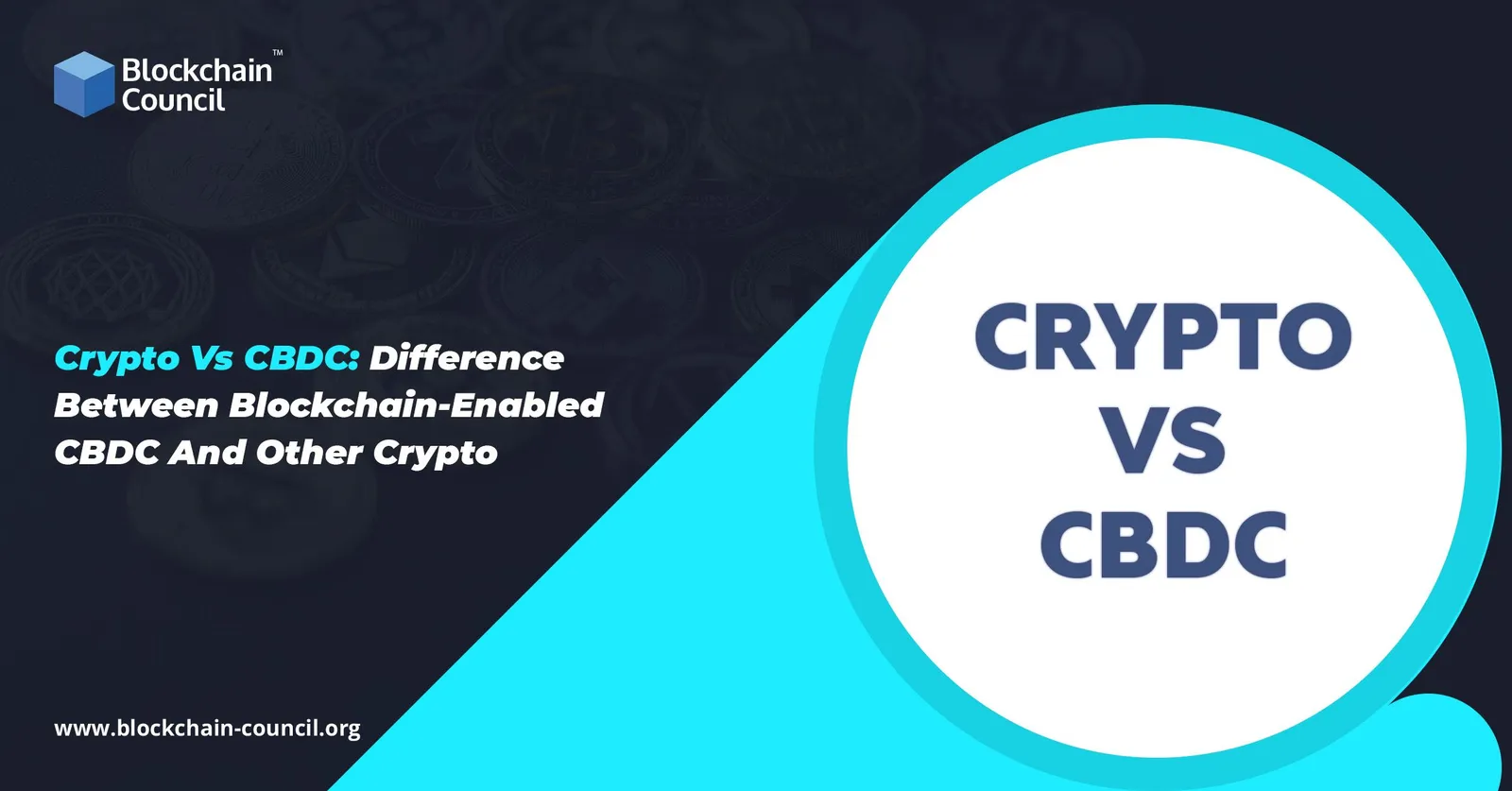Crypto vs. CBDC: Difference between Blockchain-Enabled CBDC and Other Crypto
Digital currencies issued by central banks have been one of the most revolutionary developments in the global financial ecosystem. CBDCs have piqued the attention of the financial services industry and the media. The People’s Bank of China has announced that existing cash will be phased out in favour of new digital currencies in the near future. Similarly, the European Central Bank has proposed many ways to integrate CBDC into their financial system.
Similarly, the Banque de France has released a request for proposals to investigate the possibility of adopting digital currency, suggesting that CBDCs are becoming more popular. As a result, the Crypto vs. CBDC controversy and its implications for the broader financial system have perplexed many central banks.
Blockchain technology is being used in a growing number of applications in today’s world. Getting a Blockchain degree and training in blockchain technology is not only a good idea, but it will also help you start a Blockchain-related career.
What is a CBDC?
A central bank digital currency (CBDC) is a blockchain-based virtual currency issued by a central bank.
Based on data from the European Central Bank’s report on the digital euro and news reports about China’s digital yuan, we can deduce that CBDCs are private digital currencies created to exchange value through digital transactions. The field of digital payments is where it is being used the most.
What is Cryptocurrency?
Cryptocurrencies are non-permissioned decentralised crypto assets stored on public blockchain networks. They have a finite or infinite supply, and in some cases, users can obtain tokens by directly supporting the network, the two most popular methods being mining and staking.
Crypto Vs CBDC
On the one hand, we have a centralised digital currency that is owned by a central bank and whose blockchain network can only be interpreted and interacted with by a small number of financial institutions. CBDCs are only allowed to be used for payment, and any kind of hoarding or investment is strictly forbidden.
Cryptocurrencies, on the other hand, are decentralised digital artefacts that are hosted by a publicly accessible, permissionless blockchain network. Cryptocurrencies may be used for both commercial and recreational purposes. There is no centralised authority to oversee their use. Furthermore, their supply has always been restricted, and it cannot be changed without the consent of a majority of users.
Core differences
This is a kind of blockchain. Permissionless (public) blockchains are used by cryptocurrencies, while permissioned (private) blockchains are used by CBDCs. While the former is a centralised entity, the latter is not.
Anonymity is a virtue. Cryptocurrency users benefit from anonymity. The identities of CBDC users will be connected to a pre-existing bank account and a similar amount of personal information.
Decentralization is a term that is used to describe the process of A central bank establishes CBDC network guidelines. On crypto networks, authority is delegated to the user base, which makes decisions by reaching a consensus.
Consider the following scenario. CBDCs can only be used for cash and transfer payments. Cryptocurrencies may be used for payment as well as speculation.
Wrapping up
There is no convincing argument for supporting central bank digital currencies in the case of CBDC vs. cryptocurrencies. On the plus side, they will pave the way for greater digital asset adoption. Orthodox cryptocurrencies, on the other hand, could face strict regulation and even outright bans as a consequence of this.
CBDCs add a slew of disadvantages that devolve cryptocurrencies in unprecedented ways. We may praise them for their possible scalability, but there is little to be proud of when users sacrifice their beloved decentralisation.
Investing in blockchain classes, now that you’ve had a taste of it, sounds like a good idea. To get started, the best blockchain certification courses are available on the market.
#blockchain degree #blockchain expert #blockchain developer #best blockchain certification, #blockchain technology training
